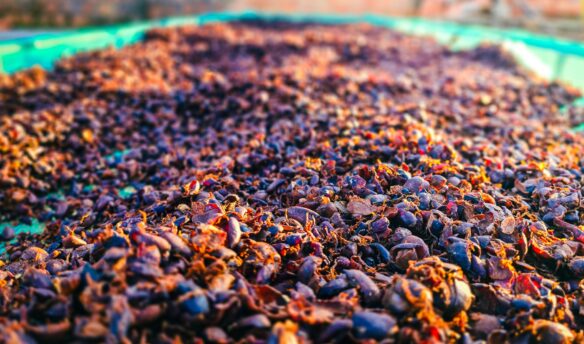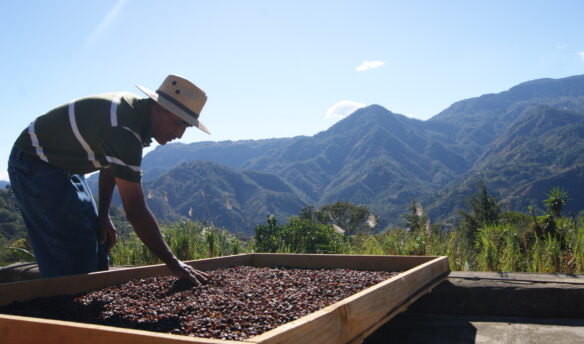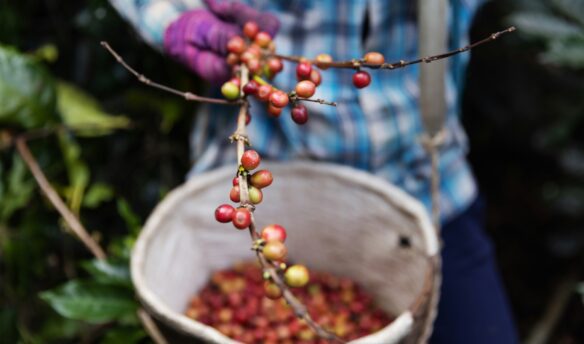For many roasters, the chaos that followed “Liberation Day”—April 2, 2025—has yet to dissipate. That was the day the Trump administration announced sweeping tariffs on virtually all imported goods from most countries around the world. (Perhaps most comical and confounding were the tariffs placed on goods from a string of islands near Antarctica, which are inhabited only by penguins.)
The administration used words like “universal” and “sweeping” ahead of the tariff announcement to describe their scope, but many believed that coffee—a product that is primarily grown outside the United States—would be exempt.
That exemption never came to pass. On Liberation Day, the White House announced that goods from Vietnam, the world’s largest grower of robusta coffee, would be tariffed at 46%; that imports from Indonesia would face 32% tariffs; and that just about everywhere else, including coffee-producing countries like Colombia, Peru, and Brazil, would get slapped with a baseline 10% tariff.
After April 2, tariff talks yo-yoed from one extreme to the next, leaving roasters—and everyone else in the coffee industry—in limbo while they waited for definitive guidance. In August, President Trump announced an additional 40% tariff on Brazilian goods, bringing up the country’s tariff rate to 50%.
Soon after, a federal appeals court ruled that a majority of Trump’s tariffs might be illegal. Did that even matter when, in October, the Senate passed a bill to strike down tariffs imposed on Brazilian goods? On top of that, the House and Senate have both introduced bipartisan bills to exempt coffee from tariffs, leaving everyone wondering: What the heck is going on?
Importing coffee is a process that takes months—sometimes even years—and the ambiguity around tariffs makes planning menus and sourcing beans nearly impossible. Seven months into this rollercoaster, we checked in with 11 RoasterLink participants to see how tariffs are shaping their outlook
We asked: How does the current tariff situation make you feel about the state of roasting and the direction of your business? Here’s what they had to say:
Rick Evans, CEO at Evans Brothers Coffee Roasters, Idaho
The current tariff situation (on top of already record-high green coffee costs) is the biggest challenge in our 17 years. It is extremely difficult to run any small business in this environment, and I believe coffee is currently among the most difficult. The situation SUCKS.
Mark Johnson, CEO at Intent Coffee Roasting, Oregon
Frustrating, because we are already paying taxes. It is pointless, and makes everything harder. It sucks being taxed twice on one product and seeing the administration celebrating that they are making more money off U.S. citizens and specifically small business owners.
Erin Halloran, senior account manager at Driven Coffee Roasters, Minnesota
It definitely feels like a pointless burden that is passed on to roasters and ultimately customers in the form of increased prices. There is no argument to justify a tariff on things that cannot physically be produced in the country. We have had to broaden our importer relationships. This leads to increased time chasing coffees, sample roasting, and cupping endlessly to find the diamonds in the rough, and ultimately it has been a catalyst to further direct-trade relationships.
Andy Newbom, founder at Torque Coffee, California
It’s draconian taxation without representation by a fascist dictator who wants to be emperor. It hurts everyone except the wealthy who get richer and richer. Because of our business model [a proportional pricing system, which lets Torque set retail prices so producers always receive 20% of the retail price as free on board (FOB) payment], we have not been affected by the green coffee shortages as much. But when the dictator starts throwing 50–100% tariffs on coffee, there ain’t no recovery from that.
Matt Marietti, president at De Fer Coffee & Tea, Pennsylvania
The tariff situation worries me less than the other factors contributing to rising coffee costs— environmental factors and inflation across the board. Tariffs are self-imposed costs—I am hopeful that common sense will prevail and we can unwind a lot of them as time goes on and it becomes more apparent they are not helpful, ESPECIALLY for a product with no real domestic substitutes. I worry more about all of the other things driving costs up that we cannot control with legislation.
Jassen Bluto, owner and head roaster at Half Mile Coffee, Idaho
The tariffs at 10% do not, in my opinion, drive prices higher. This is caused by the news cycle and daily market fluctuation in C prices, which bring in commodity day traders and bots, which puts the market in turbulence. Although, in some instances, I support tariffs to bring some manufacturing back to the U.S., for coffee it is not helpful because most consuming countries cannot produce to the demand. Ultimately, tariffs are paid by consumers, not producers.
Sam Meyer, retail and roasting operations at Friedrichs Coffee, Iowa
It’s hard to get into the politics of it. We just take what’s in front of us and handle it the best we can. Our relationships with our wholesale partners have definitely paid off, as we haven’t lost any partners this year.
Zachary Ray, CEO At Desert Sun Coffee Roasters, Colorado
The roasting business is challenging. We don’t roast coffee to sell coffee. We roast coffee to help producers live a better life, and make a positive contribution to the environment. The result is a great cup. We’re brewing a better future and hope to do so for the next 100 years!
Fred Spreen, founder at Mecklenburg Coffee Company, North Carolina
Fortunately, Americans love their coffee. However, with coffee drink prices nearing $7 for more complicated concoctions, many people seem to be rediscovering home-brewed coffee. Have no fear.
Peter Deo, COO at C&S Coffee Roasters, Illinois
Essentially, it is a tax on the consumer—and we do not see any redeeming quality for the roaster or consumer. It is not a product that can be grown in the U.S., so roasters are very limited for procurement options. The price volatility fueled by the market and tariffs will drive smaller roasters out of business, in addition to bankrupting farmers at origin. Let’s keep in mind this will hurt the already most vulnerable in our society.
Samuel Bender, CEO at Peaks Coffee Company, New York
It’s pointless to me. The U.S. can’t actually grow coffee in any sort of volume or pricing. We’re having to buy cheaper coffees and different origins to meet demand.














